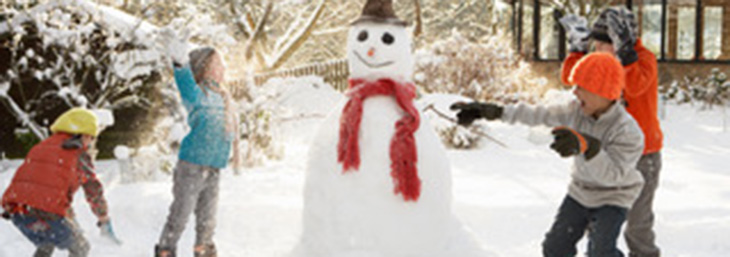
Posted: November 26, 2019 at 12:35 pm
By: Lakes Region HVAC
Weather incidents account for more than half of all homeowners’ insurance claims, according to U.S. homeowners insurance claims made to The Travelers Companies Inc. from 2009 to 2015.
Of those claims, wind, pipes freezing and bursting, roof and flashing leaks, and ice dams are among the major causes of home damage during weather events.
From the same report, non-weather-related water damage, including plumbing and appliance problems, account for 19% of claims.
To give yourself the best chance of getting through a major (or not so major) weather event without incident, follow these 7 Tips To Prepare Your Home For Winter.
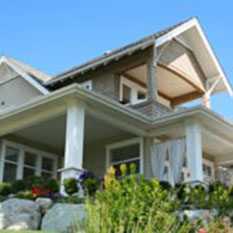
The National Association of Realtors recommends cleaning your gutters four times a year. Or, you may consider installing a rain gutter guard.
Your gutter system includes the actual gutters along the roofline, the downspouts they hook into, as well as a variety of different drainage systems designed to move rainwater away from your house.
Leaves, pine needles, maple tree samaras (“helicopters”), all clog gutters and prevent water from flowing. Then, instead of moving water away from your house, the water accumulates in the gutter until it overflows into the dwelling or down to the foundation area.
In seasonally cold-climate areas like New Hampshire, a blocked gutter can easily result in a costly ice dam.
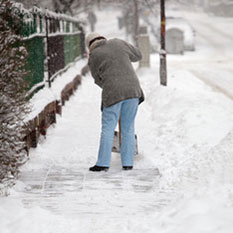
It’s not criminal to let your grass grow too long in New Hampshire.
However, your neighbors can take legal action if they think the way you keep your property “substantially and unreasonably interferes with” them enjoying their properties, according to BCM Environmental & Land Law, PLLC, in Concord.
So, assume you keep your yard somewhere in between a golf-course fairway and the rough. There’s a lot more to do in order for your yard to be safe as well as good-looking:
Read more about protecting your home or vacation home during a hurricane.
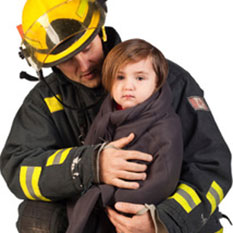
Across the U.S., roughly 14,700 home structure fires were caused by clothes dryers, and the leading items first ignited in dryer fires were dust, fiber, or lint, according to the National Fire Protection Association.
Cleaning out the lint filter after each load is a good start to preventing dryer vent fires. Even so, some lint and dust slips through the filter and builds up over time. In winter, clothes with heavy fabrics and yarn can burden you dryer with longer drying times and more lint.
Homeowners should vacuum the dryer vent pipe behind the dryer 1–2 times a year, Deputy Chief Reynold Maughn of the Boston Fire Department told NBC Boston in a fire safety special report.
It’s a good idea to keep all the owner’s manuals to your major appliances in a convenient place, and set a reminder on your calendar to provide regular maintenance for each.
When appliances run efficiently, you pay less in energy cost and your equipment lasts longer.
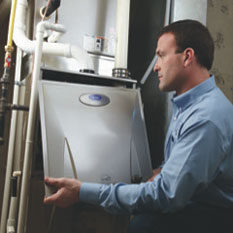
While we’re on the topic of home appliance maintenance, don’t wait until your home’s heating system fails to think about it.
The best strategy to keep your heating system running is to have it serviced on a regular basis by a professional HVAC technician.
Here are 3 Ways Furnace Tune-Ups Pay Off.
Many experts recommend doing some DIY furnace maintenance during the winter by checking the filter once a month. You don’t have to change it, if you aren’t comfortable. Simply detecting a dirty and clogged air filter (and getting it changed by a pro) can save you from expensive repairs and ongoing higher energy costs.
You can expect to pay less than $100 for an HVAC technician to put in a new filter, according to Consumer Reports.
A clogged filter that goes unchanged increases the chances of a failed compressor, which can cost more than $2,000 to fix.
Become familiar with your home’s entire heating and cooling system. Do you use oil, natural gas, or propane? Is your system forced air or radiant heat?

More than 60% of American homes have below-grade wetness, according to the American Society of Home Inspectors.
Many homeowners mitigate basement flooding with a sump pump. This simple device is typically buried in a pit below the basement floor at its lowest spot.
When underground water reaches a set level, the sump pump turns on and moves the water out of the basement through pipes.
The Sump and Sewage Pump Manufacturer’s Association (SSPMA) recommends:

Homeowners who live in their homes year-round have little to worry about as far as freezing pipes.
The two exceptions are additions, including three-season rooms, and exterior faucets. If there’s plumbing in your patio, garage apartment, or she-shed, make sure all the pipes are thoroughly insulated or drained before the first freeze.
Also, drain your garden hose and detach it from the exterior faucet. When temperatures dip below freezing, any water inside the hose will expand and tear the hose and possibly burst your faucet pipe.
A furnace needs fuel, air, and a spark to make heat, and when one of those things is taken away, the equipment fails, according to The Boston Globe.
Also, if the exhaust vent gets blocked, there’s a risk of deadly carbon monoxide leading into the house so always clear snow away after any big snow fall.
Air intake and exhaust pipes are required to be at least 12 inches off the ground, but in regions with heavy snow falls, a foot may not be enough.
There are many different types of solutions that an HVAC contractor can discuss with you. In the meantime, check on the furnace exhaust and intake vents when the snow piles up.
If this article is useful to you, or if you know someone who can benefit from it, please Share it.
Have another question? Contact the Lakes Region team, and we’ll find your solution.
Our clients are homeowners, small business owners, and corporations—and one could be you by calling 603-286-2290 or emailing info@lrhvac.com.
Lakes Region’s expert service technicians and installers are trained in the latest advancements in heating and cooling technologies. We'll help you select the correct comfort system for your home, ensuring that your equipment operates at the highest efficiency — giving you the lowest monthly operating cost.
Visit our website.
LRHVAC’s office hours: Monday - Friday
7:30-4:30
Phone: 603-286-2290
Mail: 86 Bay Hill Rd., Northfield, NH 03276
Email:
Email us